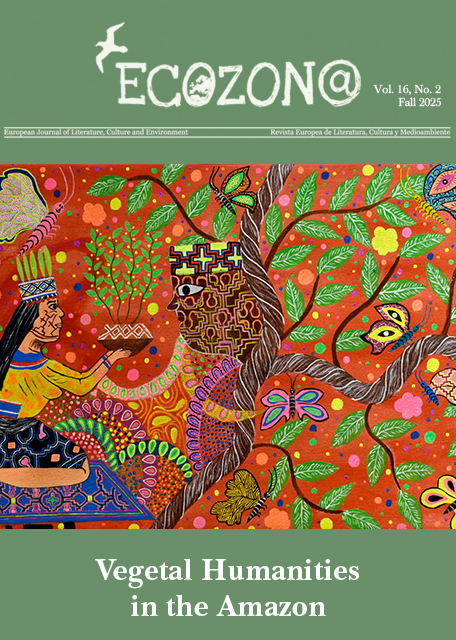<b>The Promise of Disaster: Specters of Malthus in Marxist Dreams</b> // La promesa del desastre: Espectros de Malthus en sueños marxistas
DOI:
https://doi.org/10.37536/ECOZONA.2018.9.1.1649Parole chiave:
Malthus, Marxism, ecology, French Revolution, hunger // Malthus, marxismo, ecología, Revolución Francesa, hambreAbstract
This article considers Malthus in the context of Marxist criticism and ecology. While these critics see Malthus as a proponent of austerity, this essay reads the Essay on the Principle of Population to suggest that Malthus establishes pain, rather than pleasure, as a primary political problem, and that the ecological apocalypse he predicts is mirrored by his concern for an intellectual apocalypse that derives from pain—his own toothache. It considers also the function of the French Revolution, and hunger, in Malthusian thought.
Resumen
Este artículo estudia a Malthus dentro del contexto de la crítica marxista y la ecología. Mientras que los críticos de estas escuelas ven a Malthus como un defensor de la austeridad, este texto analiza el Ensayo sobre el principio de la población con el objetivo de sugerir que Malthus establece el dolor, en vez del placer, como un problema político primario, y que el apocalipsis ecológico que predice se refleja en su preocupación por un apocalipsis intelectual que deriva del dolor—su propio dolor de muelas. También se reflexiona la función de la Revolución Francesa y del hambre en el pensamiento malthusiano.
Downloads
##submission.downloads##
Pubblicato
Fascicolo
Sezione
Licenza
Authors who publish with this journal agree to the following terms:
a) Authors retain copyright and grant the journal right of first publication with the work simultaneously licensed under a Creative Commons Attribution License that allows others to share the work with an acknowledgement of the work's authorship and initial publication in this journal (CC BY-NC for articles and CC BY-NC-ND for creative work, unless author requests otherwise.
b) Authors are able to enter into separate, additional contractual arrangements for the non-exclusive distribution of the journal's published version of the work (e.g., post it to an institutional repository or publish it in a book), with an acknowledgement of its initial publication in this journal.
c) Authors are permitted and encouraged to post their work online (e.g., in institutional repositories or on their website) prior to and during the submission process, as it can lead to productive exchanges, as well as earlier and greater citation of published work (See The Effect of Open Access).










